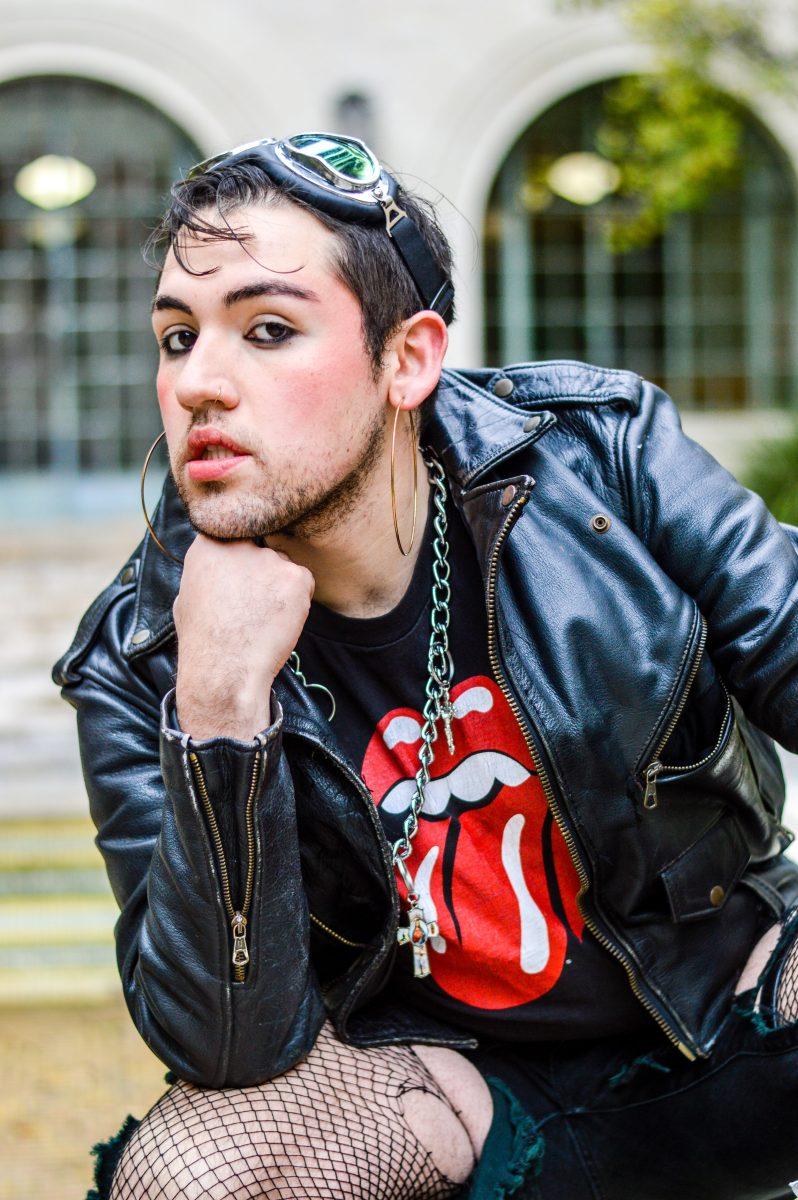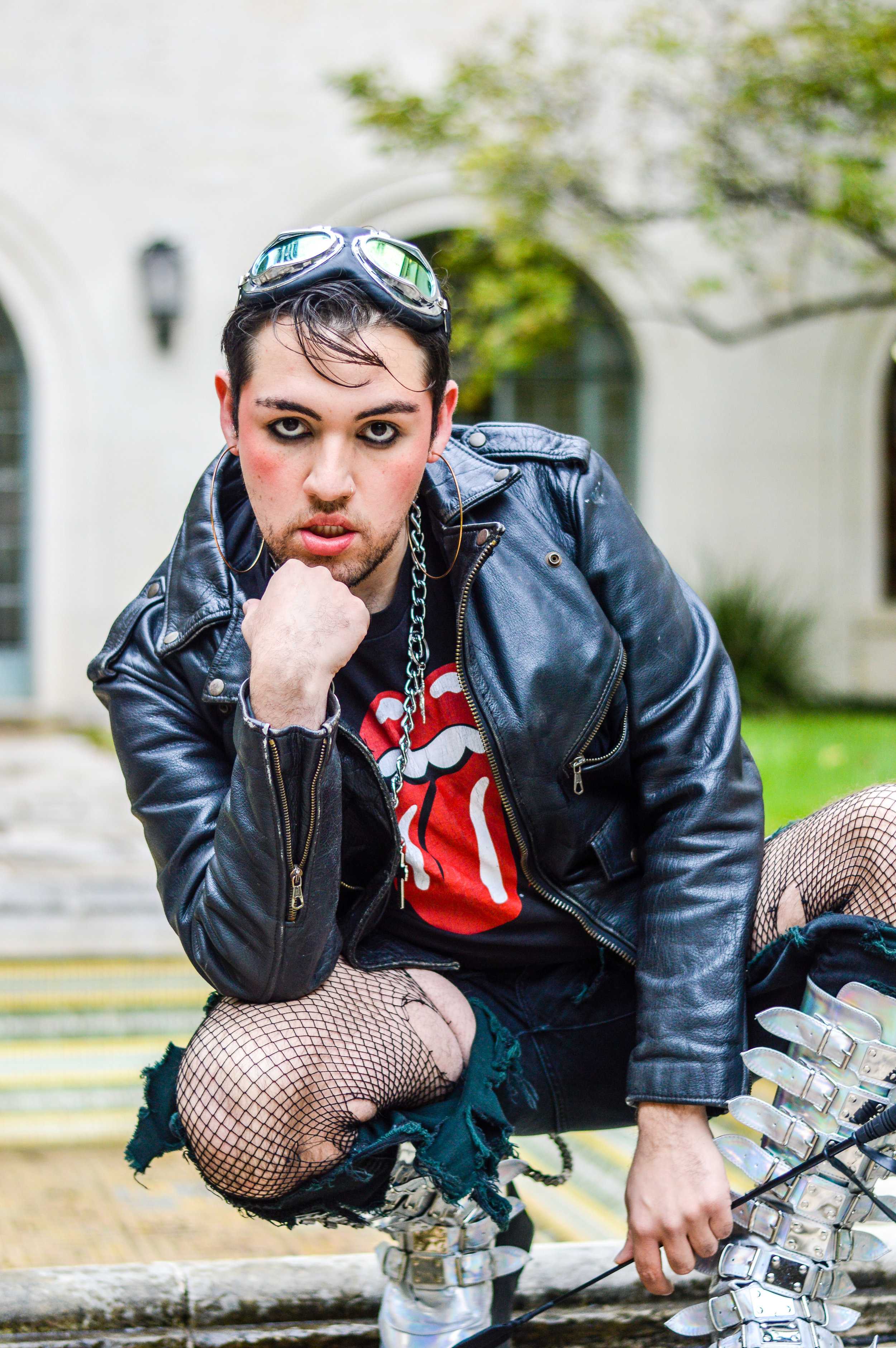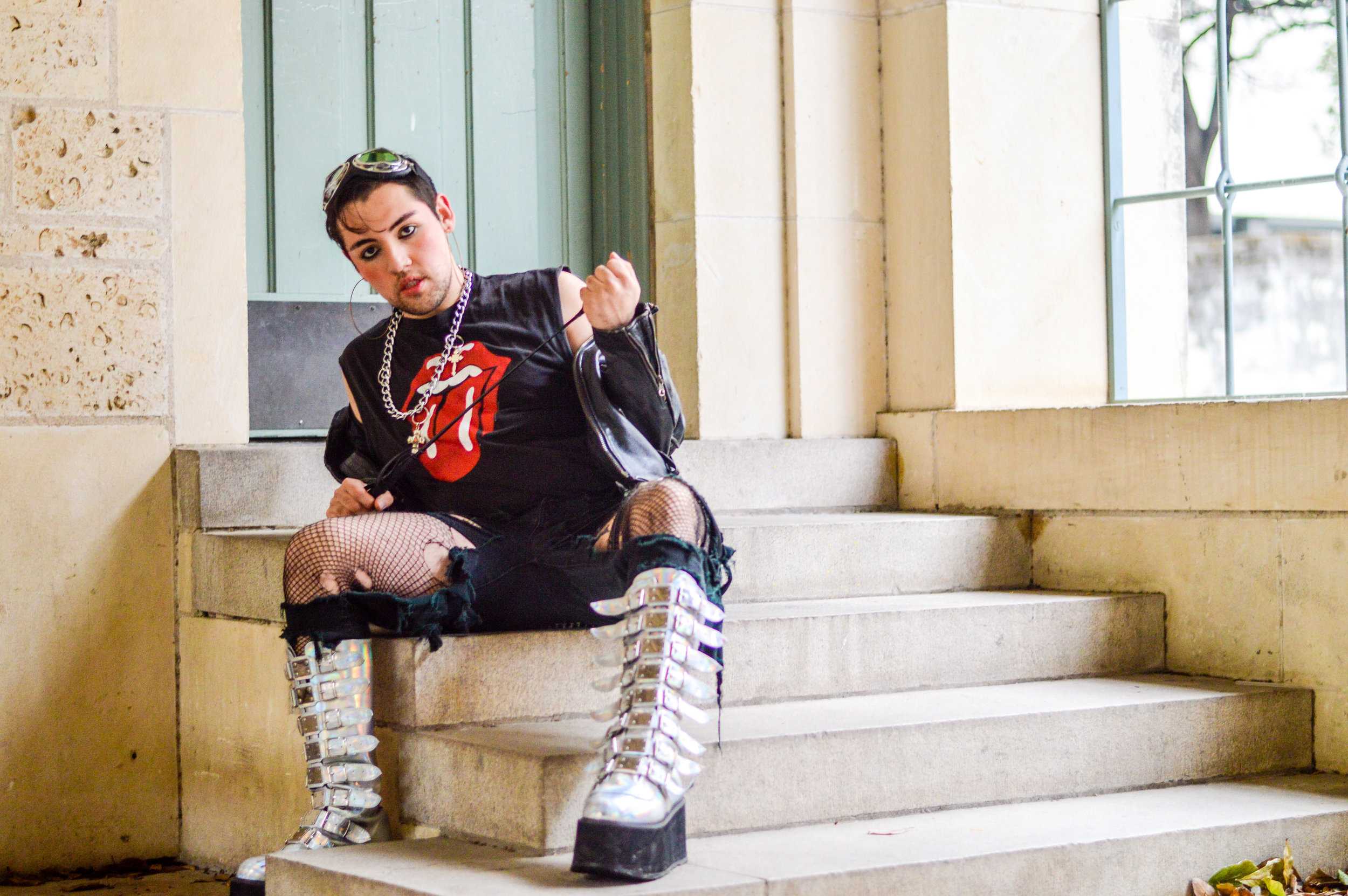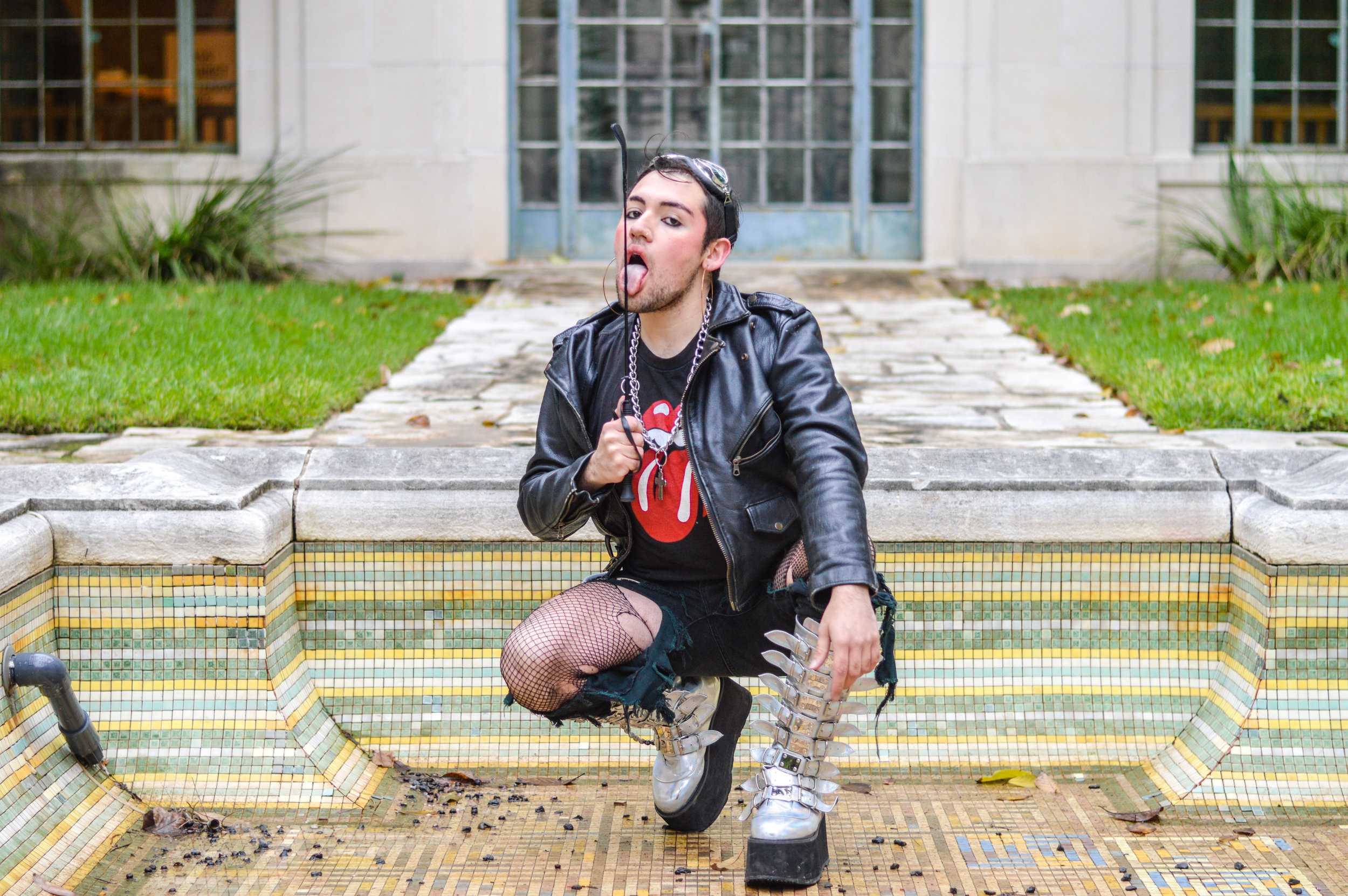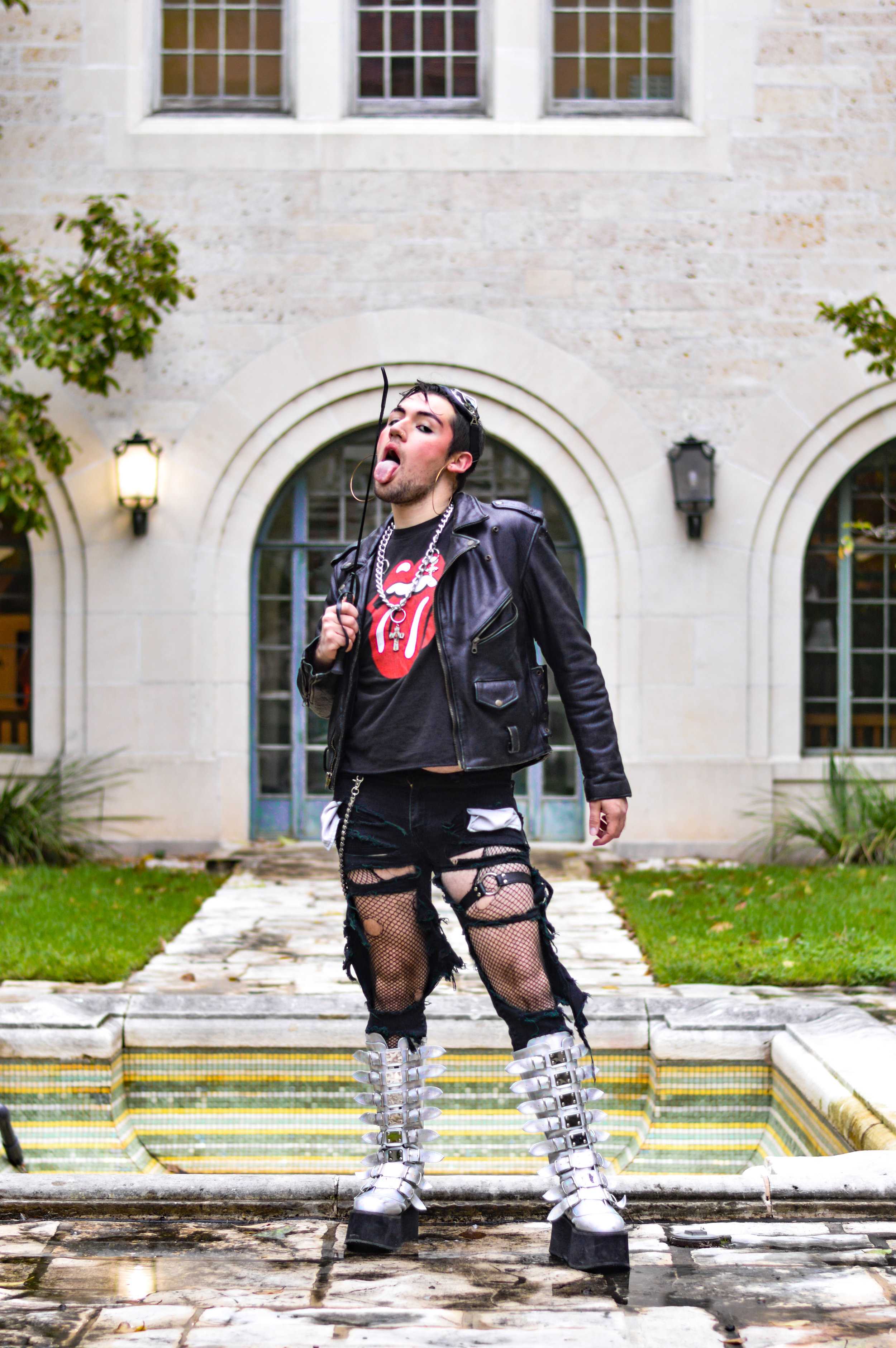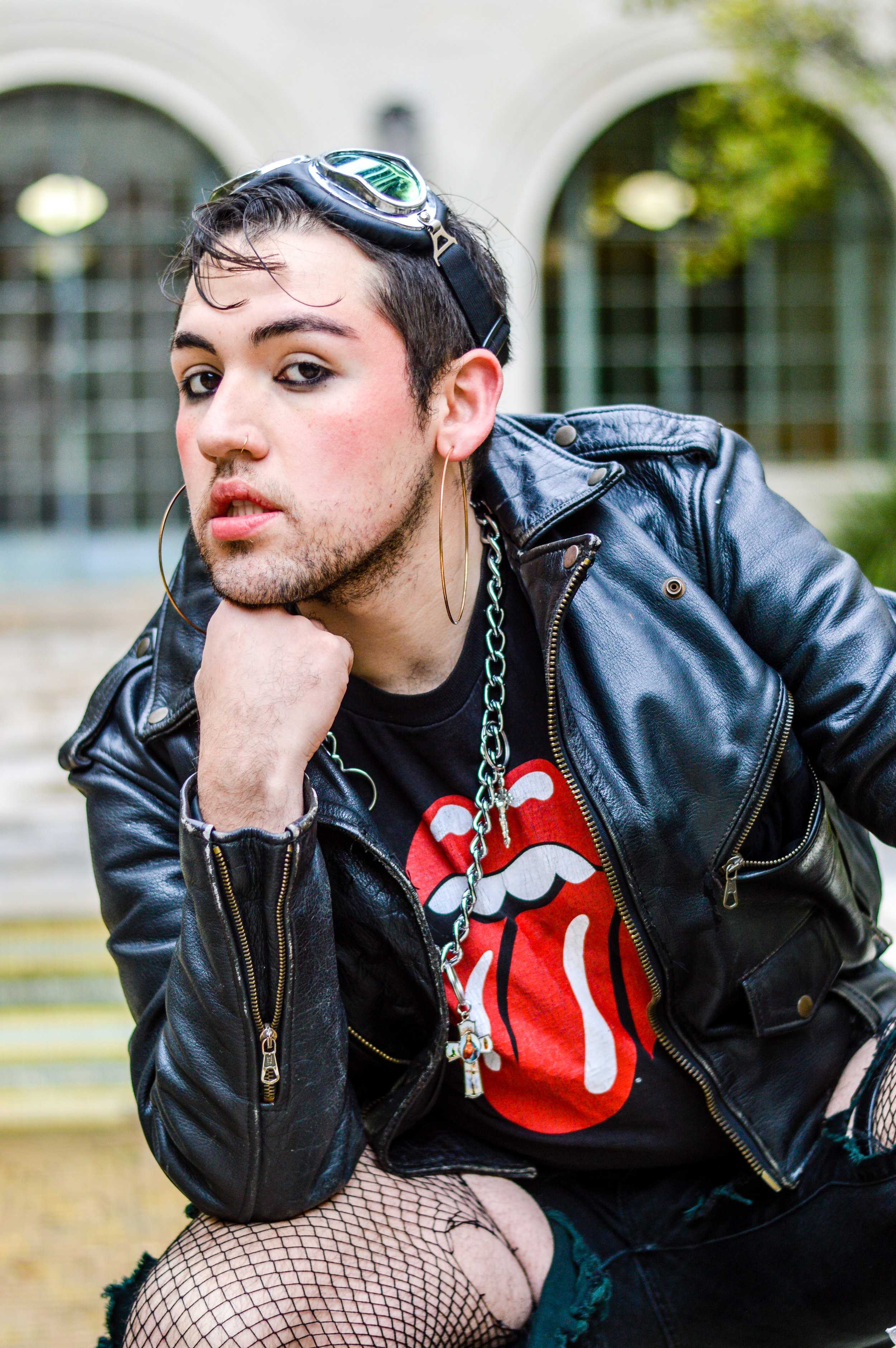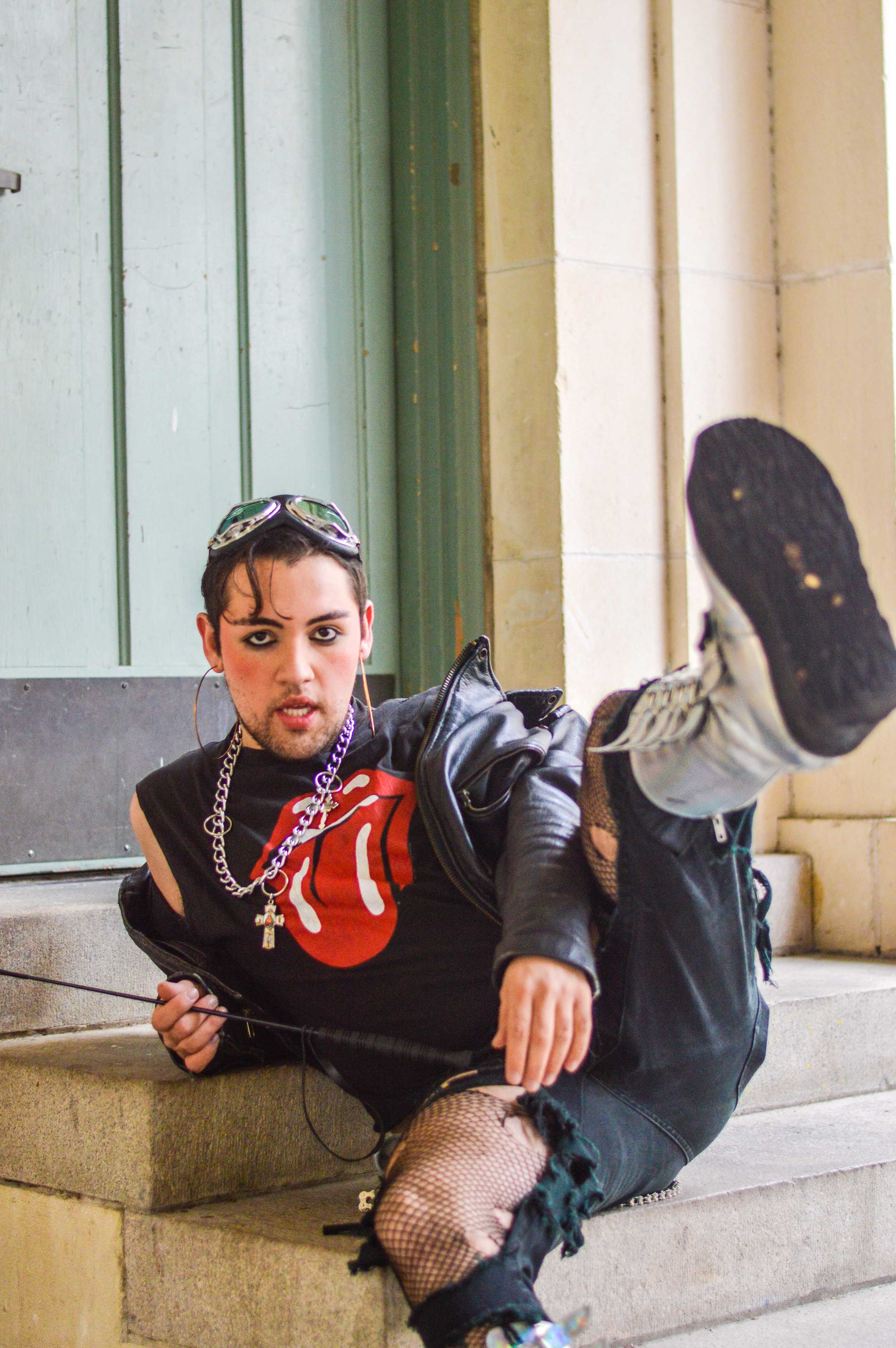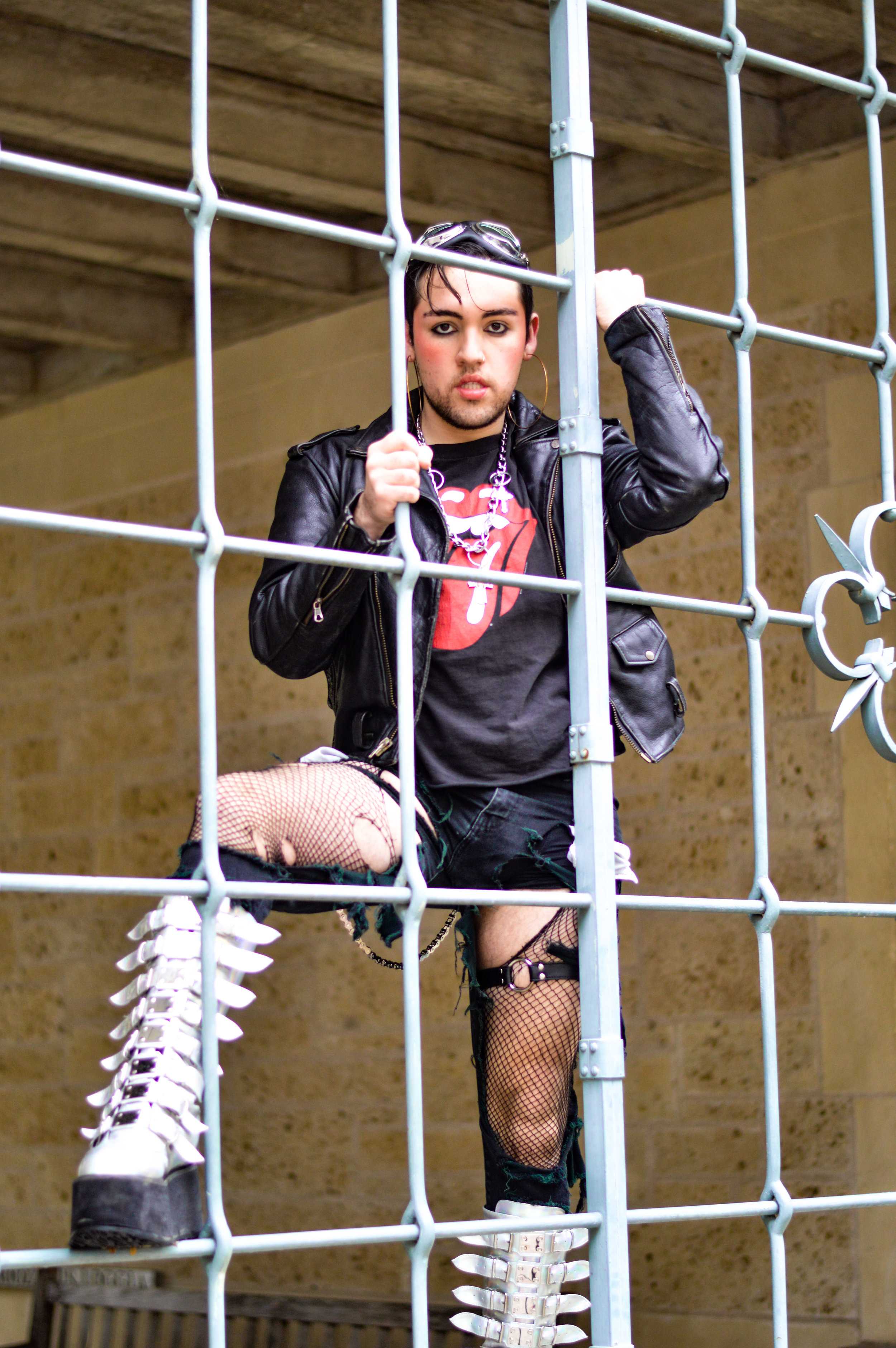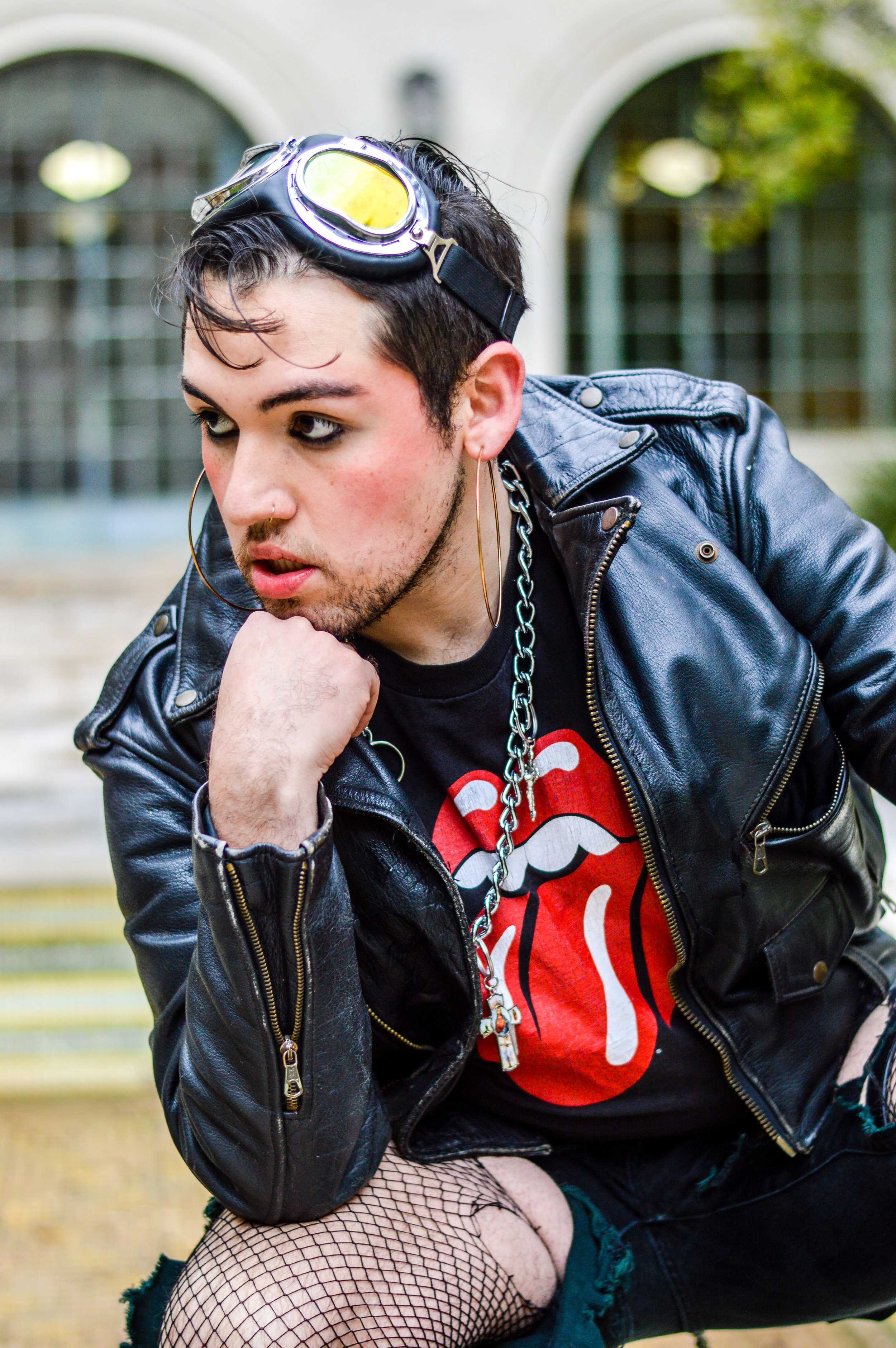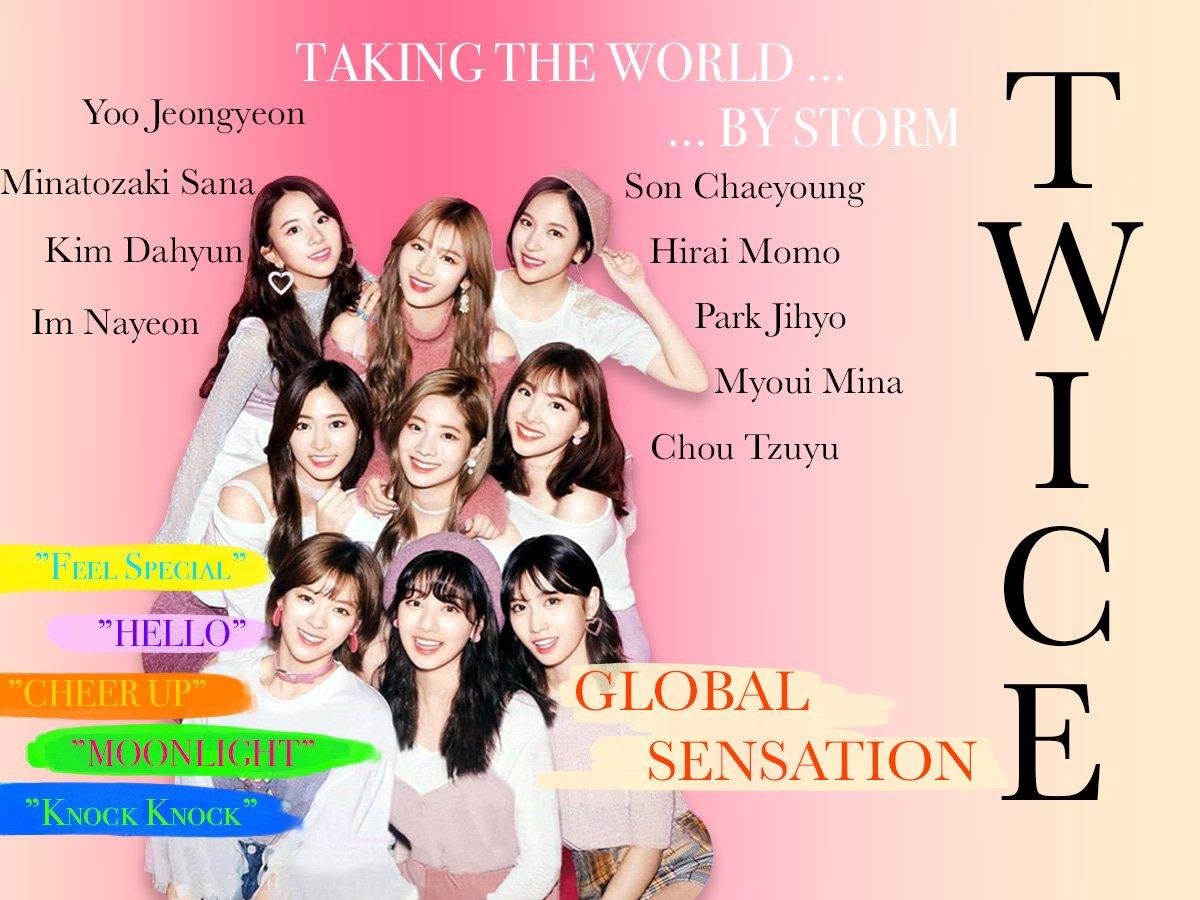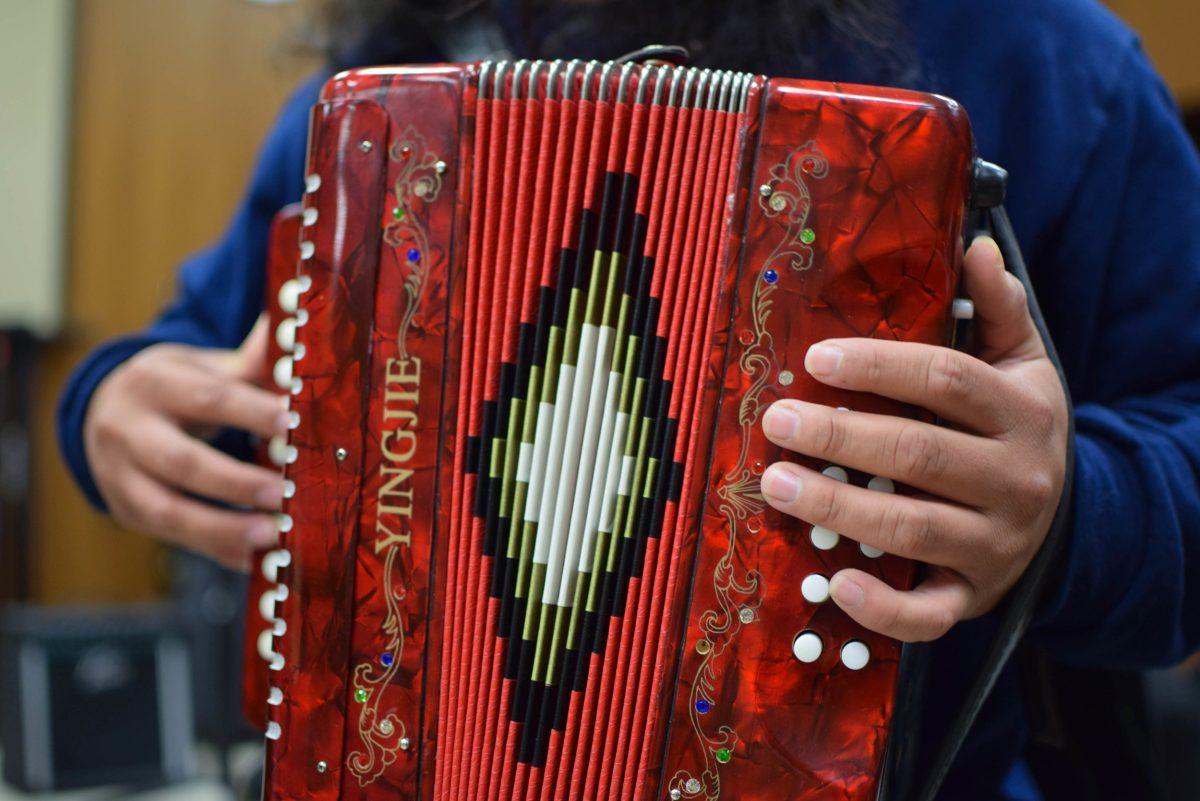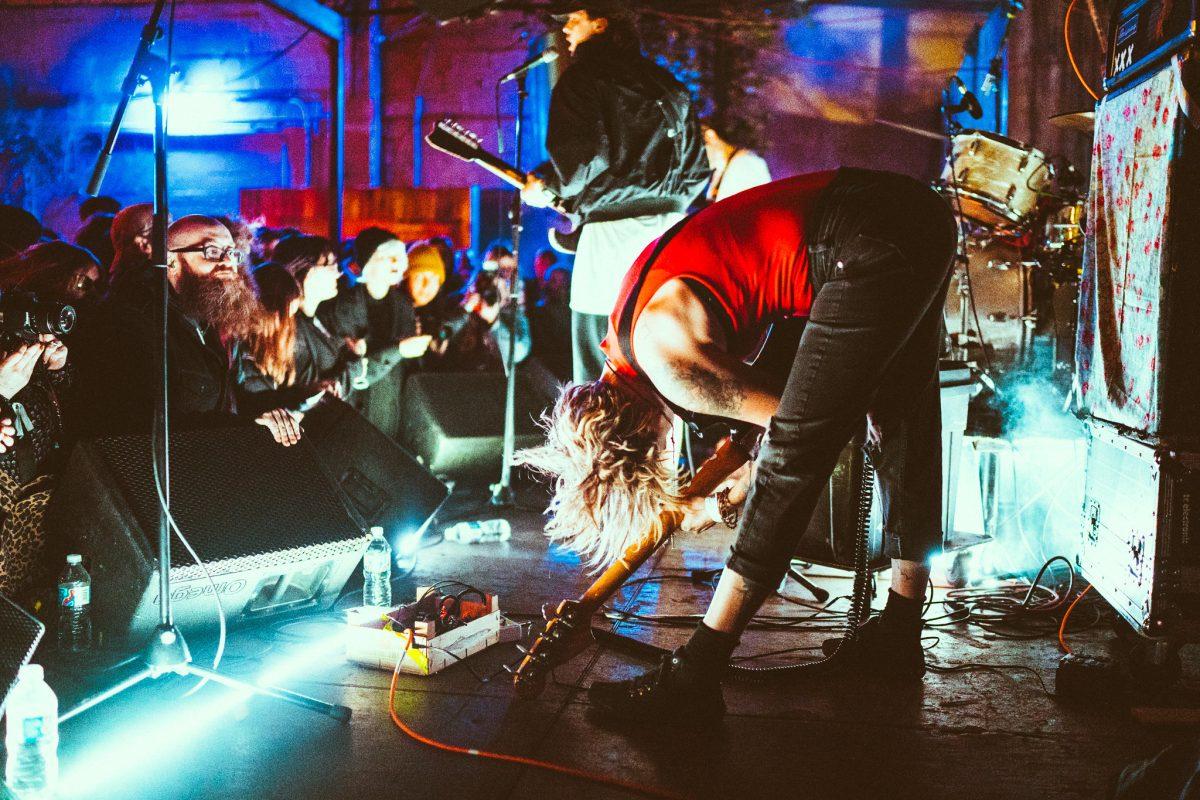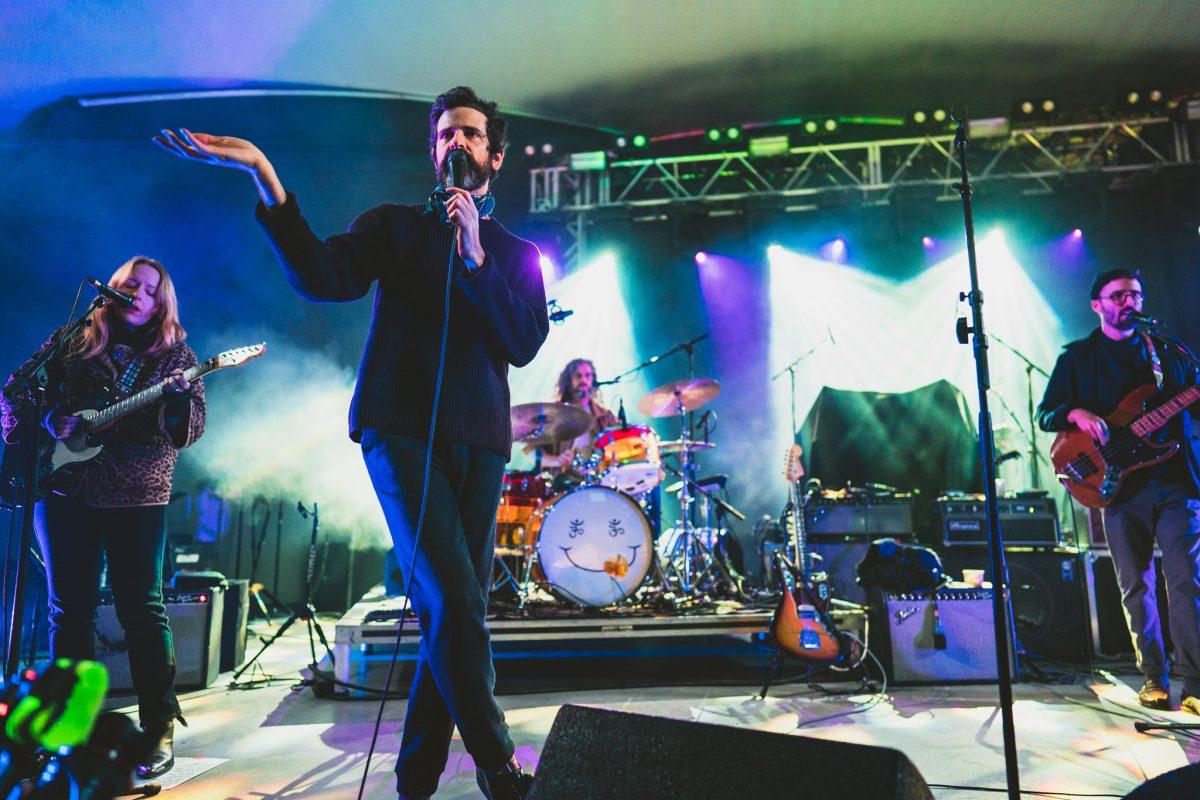“It’s tough to maneuver through music in general, especially hip-hop,” says Street Queer. “Hip-hop is a very heteronormative culture, It’s complex. A Latinx person who is queer in hip-hop—that’s a lot to break down.” His latest single, The Takeover, premiered Nov. 24, 2018.
Story by Cruz Rendon
Photos by Iris Bilich
Street Queer is the alias for University of Texas at Austin student, Dorian Delafuente, who has been making a name for himself through rap. “I grew up listening to a lot female rappers,” says Street Queer as he reminisced buying The Miseducation of Lauryn Hill, his first CD. “I love a strong feminine presence.”
Originally from San Antonio, Street Queer transferred to UT Austin from the University of Houston as a theatre major. This year, Street Queer joined The PLASTIK Collective which hosts events in a safe space for alternative queer people in San Antonio.
Street Queer’s music packs quick punches that are sexually liberating and honest. He raps proudly about being gay, often calling himself a ‘faggot,’ as an act of reclaiming the word. You can be sure to bump your heads to the heavy, trap influenced beats.
Through Unbounded Agency, Street Queer has been able to perform at events in Austin, most held at Cheer Up Charlie’s. He wants to plan a Texas tour with drag queen Belladonna, a labelmate in Dungeon Play Only.
His first freestyle was a remix to Remy Ma’s verse in “Lean Back” by Terror Squad, which he uploaded to Instagram and Twitter. Street Queer has found collaborators through social media. He says it’s where you meet everyone nowadays. DreBae, based in the Bay Area, and GodIsMikey, based in Atlanta are queer rappers that he met through Instagram.
In The Takeover, the three rappers get together to give a taste of their distinct flows. “When I’m at the top/Swear to God I’m gonna represent,” raps Street Queer on The Takeover. “When I get a spot/All my bitches gonna get it in.”
The artists want to let people know that even though they’re from different corners of the country they’re coming together to shake things up in hip-hop. “I wish there were more [represented in the media],” Street Queer says about queer Latinx musicians. “There’s a lot of erasure of disenfranchised people. People are white-washed and made to fit into heteronormative American culture.”
Street Queer took a queer & sexuality class that focused on raunch aesthetics. A focus in the class was the raunch tools utilized by female rappers and other disenfranchised people in order to empower their community. “I remember being nervous,” he said with a chuckle. “There’s not a lot of queer rappers. There needs to be someone unafraid going after it. I’m not afraid to be explicitly queer.”
Issues such as this have sparked frequent discussion as hip-hop, created and popularized by the black community, has become one of the most consumed and misinterpreted genres of music. With hip-hop’s increased popularity, it’s artists like Street Queer who will keep the genre progressing while staying true to its roots. For more Street Queer, stream The Takeover here.































